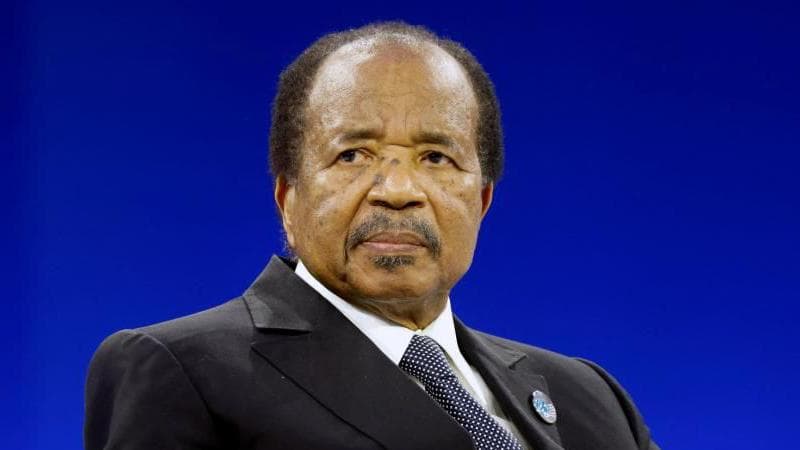We're loading the full news article for you. This includes the article content, images, author information, and related articles.
President Paul Biya's disputed eighth-term victory in Cameroon raises questions for Africa on democratic stability and generational change, matters of significant interest to Kenya and the East African region.

YAOUNDÉ, CAMEROON – Cameroon's Constitutional Council on Monday, October 27, 2025, declared incumbent President Paul Biya the winner of the October 12 presidential election, extending his 43-year rule over the Central African nation for an eighth term. The official results gave the 92-year-old leader 53.66% of the vote, a figure that has ignited deadly protests and accusations of widespread electoral fraud from his main challenger.
The announcement, made by Council President Clément Atangana in Yaoundé, confirmed that former government minister Issa Tchiroma Bakary, 79, secured 35.19% of the vote. Voter turnout was reported at 57.7%. The result means Biya, the world's oldest head of state, could remain in power until he is nearly 100 years old, a prospect that has deepened political fissures in a country grappling with multiple crises, including a separatist insurgency and jihadist violence.
The election's aftermath has been marred by significant unrest. Clashes between security forces and opposition supporters have resulted in at least four deaths and over 100 arrests in cities like Douala, Garoua, and Maroua. Tchiroma Bakary, who had preemptively declared victory on October 14 based on his campaign's tallies, rejected the official outcome as a “masquerade” and alleged that security forces fired on civilians in his hometown of Garoua. The government has denied the allegations of fraud and accused some opposition figures of fomenting an “insurrectional movement.”
The credibility of the election has been challenged by both local and international observers. A coalition of eight Cameroonian civil society groups reported several irregularities, including the presence of deceased voters on electoral lists and instances of ballot-box stuffing. In contrast, the African Union (AU) observer mission, of which Kenya is a prominent member, stated the vote was “conducted largely in accordance with regional, continental and international standards,” while acknowledging some logistical challenges. The government reported that over 5,000 national and international observers were accredited to monitor the poll.
President Biya's decision to seek another seven-year term was contentious from the outset. Having ruled since November 6, 1982, he is the only leader most of Cameroon's 30 million people—over 70% of whom are under 35—have ever known. His long tenure has been characterized by a firm grip on power, aided by a 2008 constitutional amendment that removed presidential term limits. Critics point to his frequent and prolonged absences from the country, often at the luxurious Intercontinental Hotel in Geneva, Switzerland, as evidence of detached governance. An investigation by the Organized Crime and Corruption Reporting Project (OCCRP) found that Biya had spent at least 4.5 years on private trips abroad since taking office. During these absences, significant authority is often wielded by key officials, most notably the influential Secretary-General of the Presidency, Ferdinand Ngoh Ngoh, whom some analysts describe as the country's de facto president.
While Cameroon is geographically distant from East Africa, the political developments in Yaoundé carry significant weight for Kenya and its neighbours. The situation serves as a critical barometer for democratic processes and political stability across the continent—a key concern for Nairobi as a diplomatic and economic hub. Political instability in one nation can negatively influence investor confidence and democratic norms region-wide.
Kenya's direct economic ties with Cameroon, though modest, are growing. According to the UN COMTRADE database, Kenyan exports to Cameroon were valued at $7.14 million in 2023, a significant increase over the past five years. These exports primarily consist of products like malt extract and poultry. The continued stability of Cameroon is therefore of direct interest to Kenyan businesses seeking to expand their footprint in Central Africa.
As a member of the African Union, Kenya's position is invariably linked to the continental body's response. The AU's endorsement of the election's conduct, despite documented irregularities, will be closely watched in diplomatic circles in Nairobi and other East African capitals. The events in Cameroon underscore the persistent challenges of ensuring peaceful transitions of power and consolidating democratic institutions—priorities that remain central to the stability and prosperity of the East African Community (EAC) and the wider continent. As of Tuesday, October 28, 2025, the Kenyan government had not issued a formal statement on the election results. FURTHER INVESTIGATION REQUIRED.
Keep the conversation in one place—threads here stay linked to the story and in the forums.
Other hot threads
E-sports and Gaming Community in Kenya
Active 8 months ago
The Role of Technology in Modern Agriculture (AgriTech)
Active 8 months ago
Popular Recreational Activities Across Counties
Active 8 months ago
Investing in Youth Sports Development Programs
Active 8 months ago
Key figures and persons of interest featured in this article